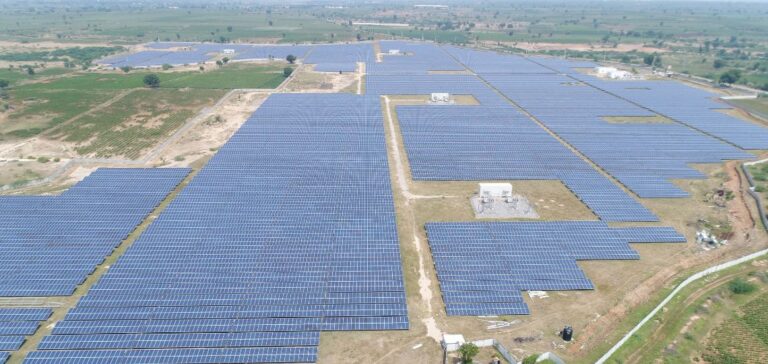India’s renewable energy sector is expanding rapidly, driven by a surge in tenders and project awards.
In the first half of 2024, the country announced around 70 GW of new capacity and awarded 38 GW to successful bidders. This dynamic reflects India’s strategy to achieve 500 GW of fossil fuel-free installed capacity by 2030. Capacity allocation was more balanced in the second quarter, with around 7 GW of renewable projects compared with a record 26 GW in the first quarter.
These trends are in line with India’s annual target of allocating 50 GW of renewable capacity.
In June, total renewable energy capacity reached 148 GW, with a pipeline of 140 GW of projects in various stages of development.
Growing demand and key players
The growth in demand for capacity via competitive tenders testifies to the growing interest in renewable energies in India.
In the second quarter, capacity demand doubled to 18 GW compared with the same period last year.
Federal agencies, including the Solar Energy Corporation of India, NTPC Ltd, SJVN Ltd and NHPC Ltd, accounted for around half of the total capacity tendered in the second quarter.
These agencies awarded around three quarters of the 7 GW of renewable projects during this period, with the remainder awarded by state agencies.
Available Offers and Closing Times
At the end of the second quarter, around 60 GW of tenders for green energy projects were available.
Almost half of these tenders are for solar photovoltaic projects, followed by 18% for hybrid projects with or without storage, and around 9% for onshore wind projects.
Around 6% of available bids were for autonomous energy storage.
Closing a tender can take up to six months from the initial request, although delays can occur due to unsustainable reference tariffs, strict auction conditions or shortage of grid capacity in high-efficiency areas.
Competitiveness and solar tariffs
The Indian renewable energy market remains highly competitive, with over 30 companies winning projects in the second quarter.
The main portfolios are held by Avaada Energy, JSW Energy Ltd, ReNew Energy Global PLC, Juniper Green Energy Pvt.
Ltd. and Ampin Energy, who won the majority of the 7 GW awarded.
These winners are mainly independent power producers and diversified utilities operating in India, while less than 5% of the capacity awarded during the quarter was won by international companies.
Average solar tariffs for projects awarded in the second quarter were around $33/MWh, an increase of around 2% on the previous quarter.
On the other hand, average tariffs for hybrid wind-solar projects were up 13% year-on-year, but down 5% on the previous quarter.
The tariff for stand-alone energy storage fell by around 20% to around $4,500 per quarter.
The 50 GW allocation targets for 2024 are within reach.
From 2020 to 2023, India awarded an average of 16 GW of renewable projects per year via tenders, reflecting an acceleration towards its energy transition goals.
The current momentum in India’s renewable energy market suggests that the country is well positioned to meet its ambitious green energy targets, reinforcing its role as a global leader in renewable energy.





















